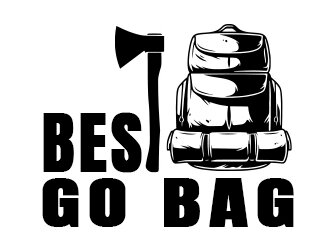There’s just something about packing for a camping trip. Stopping by the grocery store to buy roadtrip snacks and food to cook over the fire. Packing up utensils and the cast iron skillet. Deciding which blankets would be best for a cozy night in the tent.
There’s a lot that goes into packing up for an outdoor getaway. And there’s nothing worse than realizing you forgot something.
So if you’re going camping over the next few weeks, you’ll need a well thought out packing list.
Fortunately for you, I’ve got just what you need. And to make it super convenient, you can print it out as a PDF and use it to prepare for your next camping trip.
When you’ve checked off everything you’ve packed, toss your printout in a bag. It’ll come in handy when you re-pack to head home.
How to chill in the heat
Now, you may be thinking, “Frank, I’d love to go camping, but it’s still pretty hot out there.” Well, I’m here to tell you there are ways to stay cool in the heat that you might not have considered. Including having backup power for fans and other items.
First, select a campsite that has some shade. Your tents should have mesh that allows airflow. A silk sleeping bag liner will keep you cooler than the typical sleeping bag. And use a battery-operated fan inside your tent.
Take a cool shower once a day. Wear light-colored, loose-fitting clothing. Keep the sun off your head with a brim hat. Carry white washcloths in your backpack. While hiking, periodically soak one with cool water and wrap it around your neck.
Take advantage of opportunities to wade in a cool body of water. As you walk, eat juicy fruits that will taste refreshing and keep you hydrated. And drink zero-sugar sports beverages for the electrolytes.
Don’t over (or under) pack
You probably won’t need everything on the list below. Just pick what works for you and your family or companions.
To me, camping is about getting away from the rat race. I want a different kind of routine when I’m away from home. It’s a nice change of pace to see, use, wear, and eat different things than normally.
You can make do with less on a camping trip by reducing the clutter. At the same time, you can still take all the essentials.
So, here’s the promised list of camping items. Which ones you choose could depend on whether you’re roughing it or heading to a campground where some amenities are provided. It might also depend on how long you’ll be gone.
General items
- Tent, with footprints, stakes and mallet/hammer
- Ground cloth/tarp
- Sleeping bags
- Sleeping pads
- Backpack
- Blankets and pillows
- Headlamps, flashlights and extra batteries
- Camp table and chairs (if the site doesn’t have them)
- Mini-grill or camping stove
- Lantern
- Clothesline with clips
- Toiletries
- First-aid kit
- Prescription meds
- Sunscreen and protective hats
- Insect repellant
- Lip balm
- Rain gear
- Extra clothing, including several pairs of socks and underwear
- Hiking boots
- Bandanas
- Survival knife
- Multi-tool
- Duct tape
- Paracord or rope
- Saw or ax for cutting firewood (if needed)
- Compass
- Binoculars
- Field guides for flowers and insects
- Whistle
- Walkie-talkies
- NOAA emergency radio
- Disinfectant wipes
- Documents including vehicle registration, insurance, reservations, etc.
Food/food-related items
- Perishable food packed in a cooler or ice chest
- Non-perishable food for snacking and meals
- Plenty of bottled water and other beverages
- Personal water purifier
- Fire starters
- Cooking, serving, and eating utensils
- Cooking pots, pans, plates, and cups
- Tongs and skewers
- Oven mitts
- Cutting board
- Tablecloth with clips or tape
- Canteen/thermos
- Coffee pot
- Can opener
- Heavy-duty aluminum foil
- Dishwashing liquid and sponges
- Paper towels and napkins
- Tupperware
- Zip-top bags
- Trash and recycle bags
RV Essentials
Recreational vehicles are a great way to travel and camp. But it’s best to know what to take with you in order to handle potential problems with a new-to-you vehicle. Here are plenty of items to consider:
- Your RV manual
- Drinking water hose
- Sewer kit including hose
- Surge protector
- Generator
- Electrical adapters
- Water pressure regulator
- Tire pressure gauge
- Emergency road kit
- Extra motor oil and fluids (washer, transmission, brake)
- Fire extinguisher
- Wheel chocks
- Rubber gloves
- Emergency brake cable
- Tire iron
- Tire patch
- Jack
- Leveling blocks
- Emergency warning light
- Fuses
- Well-stocked tool box
- Jumper cables
Stay powered up
As mentioned earlier, backup power is important on a camping trip. There are plenty of reasons for needing backup power. They include charging up your…
- Cellphones
- Emergency radio
- Mini-fridge
- Electric blanket
- Blender
- Hotplate
- Lights inside a tent
- Outdoor security lights
- Laptop or tablet
- Coffee maker
- Toaster oven
- CPAP machine and other medical devices
- Handheld electronic games
- Boombox
- Electric razor
- Mini-TV
- Blow-up mattress pump
- GPS unit
- Portable fans
Now you have a powerful list
Without backup power, any of the items listed above could prove useless on a camping trip. Yes, you could get by without some of them, but what if you had to make an emergency phone call?
Or what if an unexpected storm was headed your way and you needed information quickly? What if your perishable food started to go bad? Worst of all, what if you needed to power up crucial medical equipment?
Camping trips are a lot of fun and a great way to unwind with family or friends. They’re good for your body, mind, and soul. Just make sure you don’t forget to pack any of the essentials before you leave home.

